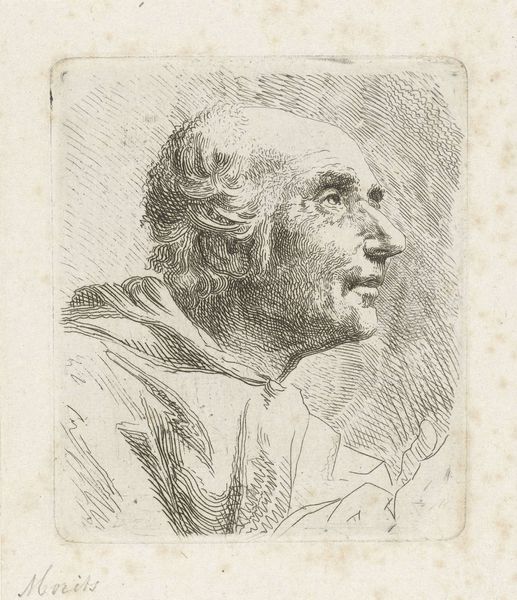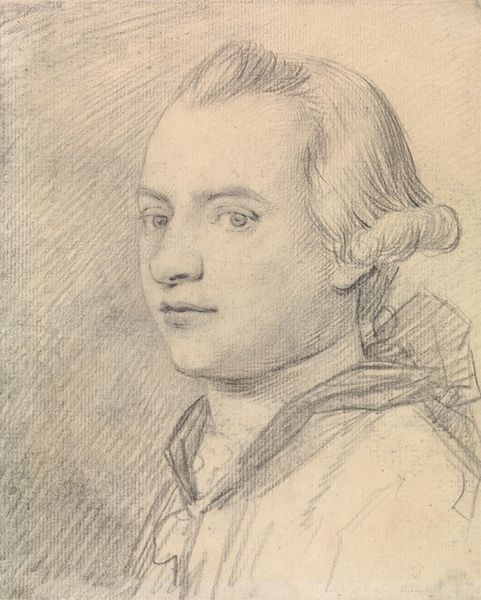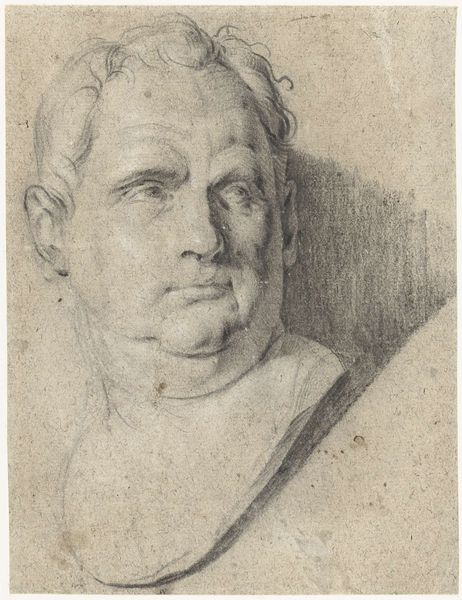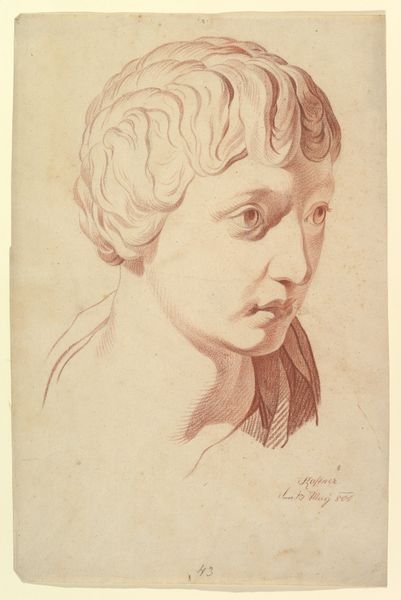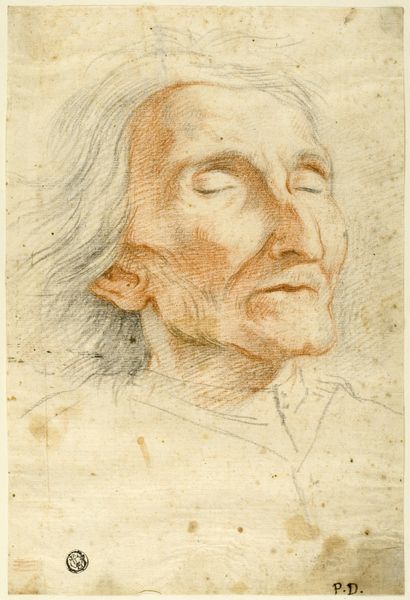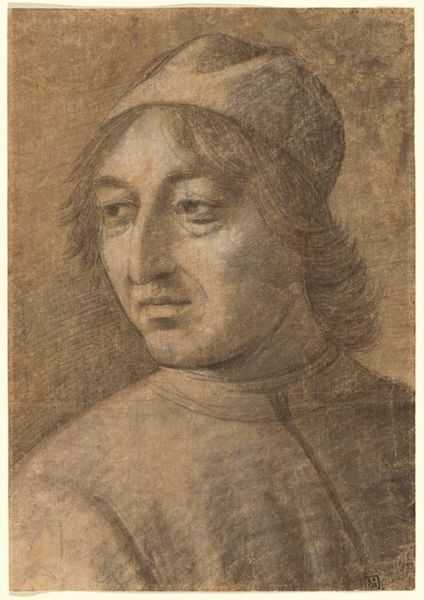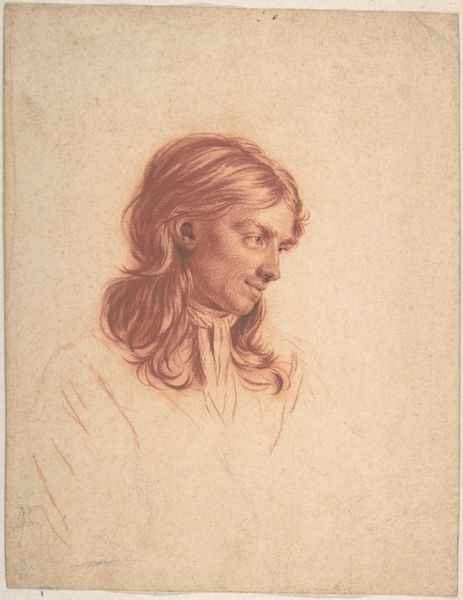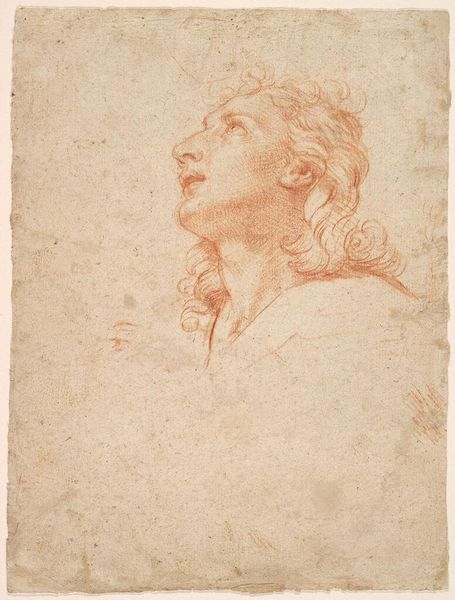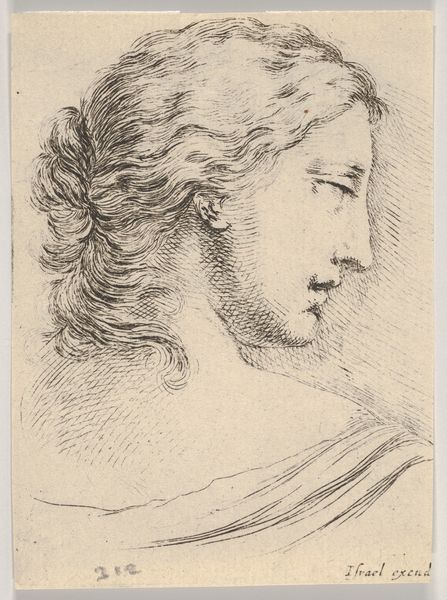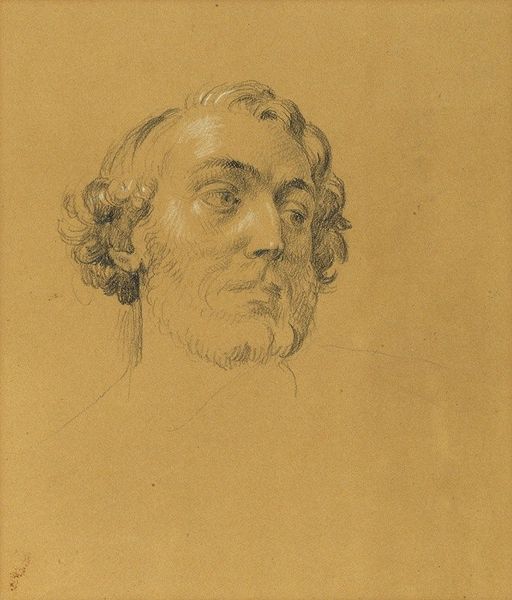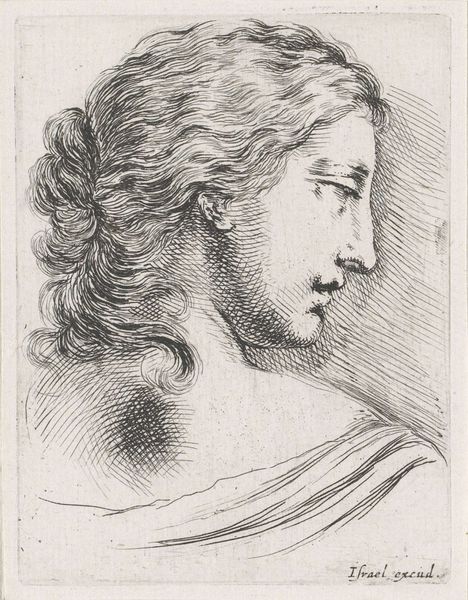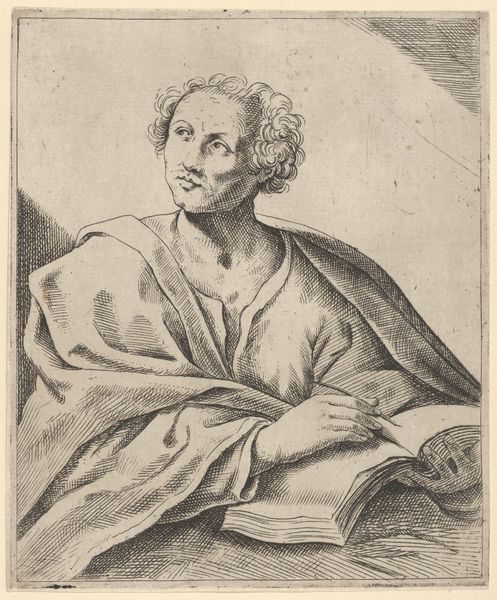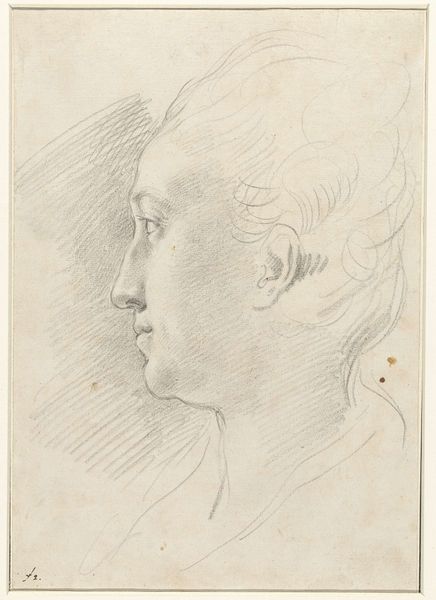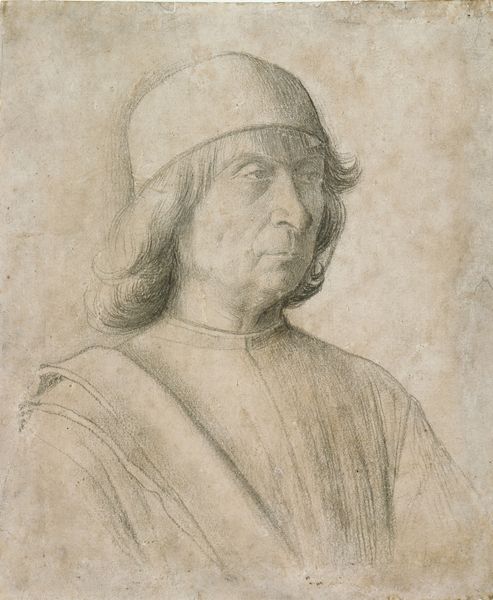
drawing, charcoal
#
portrait
#
drawing
#
facial expression drawing
#
neoclassicism
#
charcoal drawing
#
portrait reference
#
portrait head and shoulder
#
animal drawing portrait
#
portrait drawing
#
facial study
#
charcoal
#
facial portrait
#
academic-art
#
portrait art
#
digital portrait
Copyright: Public Domain: Artvee
Jean-Baptiste Greuze created this head study with chalk and pencil, likely in France during the 18th century. Though seemingly simple, the act of drawing in this period was deeply intertwined with the era’s social and political climate. Think about it: paper was becoming more accessible, driven by industrial production, and pencils, incorporating graphite, were slowly replacing older drawing tools. This shift democratized art-making to some extent, but also changed the way artists approached their craft. Look closely. Greuze’s rapid strokes, the blending of chalk, and the economy of line all speak to a changing attitude in art education, an era where quick studies from life became essential. This wasn't just about skill; it reflected an emerging market for art, driven by a burgeoning middle class. By valuing the immediacy of the sketch, we see how traditional hierarchies between finished paintings and preparatory drawings begin to blur, paving the way for future re-evaluations of artistic labour and value.
Comments
No comments
Be the first to comment and join the conversation on the ultimate creative platform.
